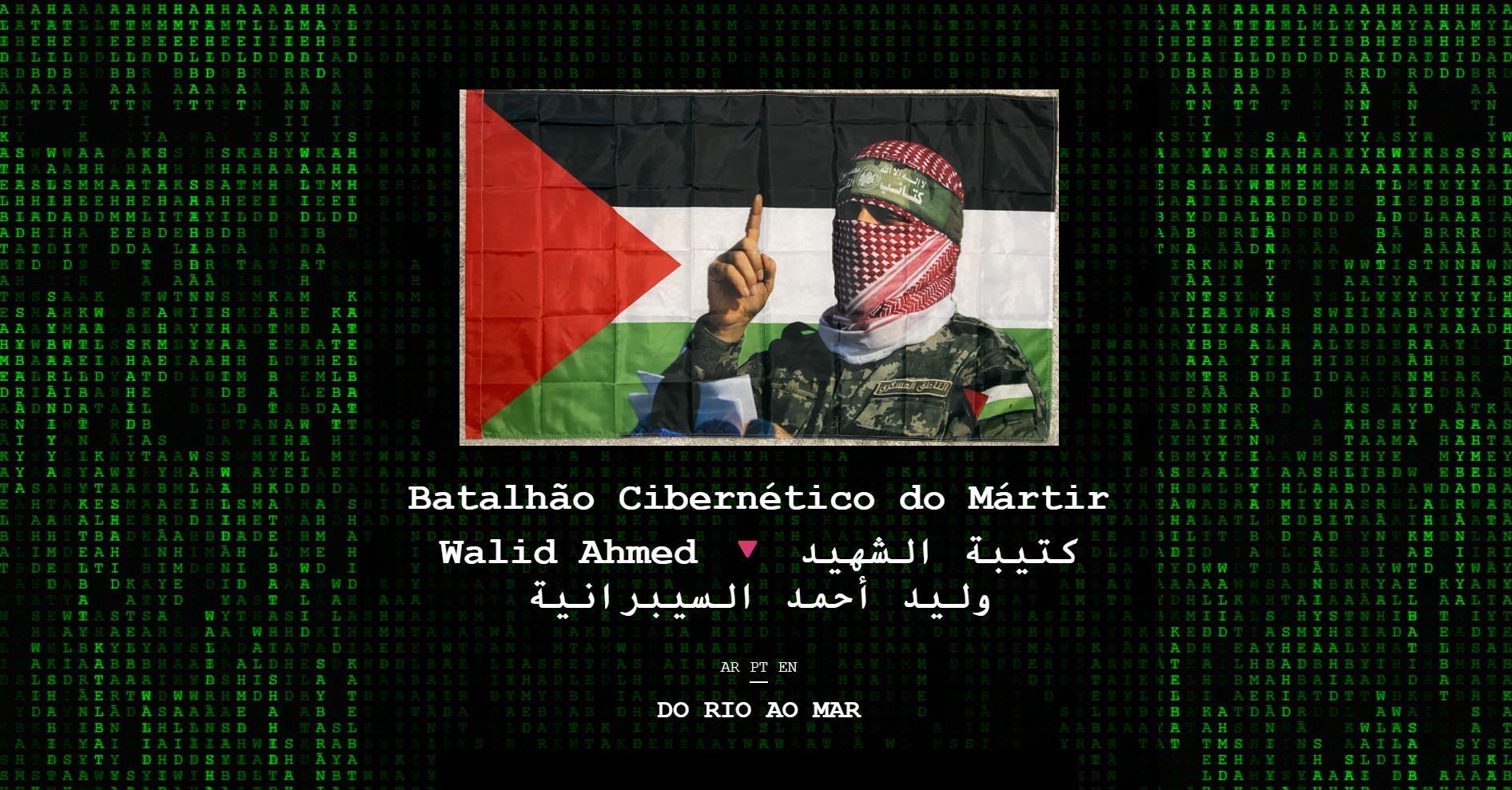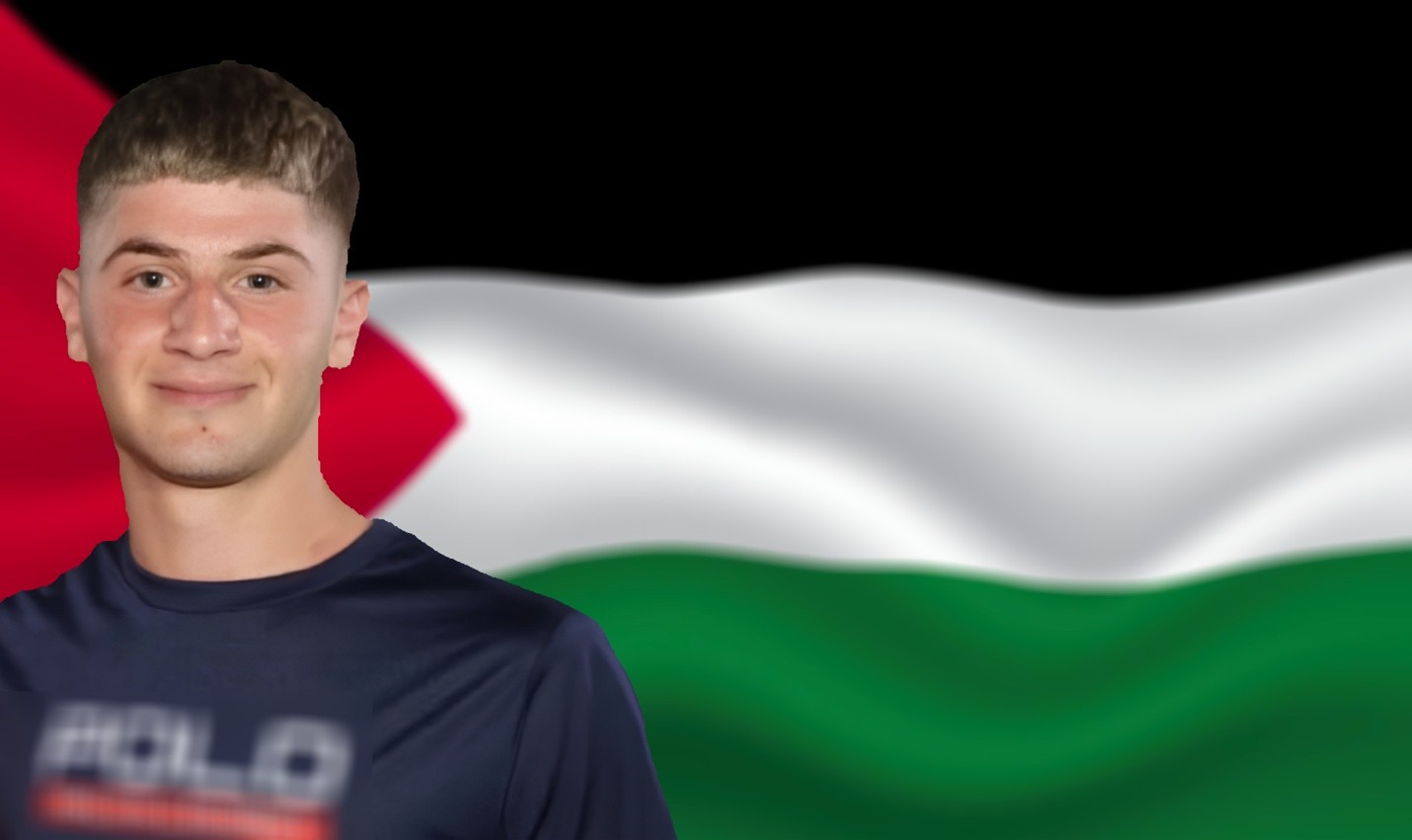
Samidoun Palestinian Prisoner Solidarity Network condemns in the strongest terms the latest attack by the US Treasury Department on the movement for Palestinian liberation, including attacking the Palestinian prisoners’ movement through designating Addameer Prisoner Support and Human Rights Association and five other charitable organizations supporting the financial and economic needs of the Palestinian people as “Specially Designated Global Terrorists” (SDGT), as Samidoun was similarly designated, along with Palestinian writer and activist Khaled Barakat, member of the Executive Committee of the Masar Badil: Palestinian Alternative Revolutionary Path Movement, on 15 Oct 2024.
Today’s designations are quite obviously a deliberate effort to isolate the Palestinian prisoners and obstruct solidarity with them from the United States in particular, as well as to starve the Palestinian people and exacerbate the ongoing US-imperialist-Zionist policy of imposed famine on the Palestinian people, particularly in Gaza.
In this context, we note that the following claim made in today’s designations: “Additionally, in the spring of 2022, [Khaled] Barakat coordinated with the PFLP to send funds to Addameer and to arrange meetings between Addameer and Samidoun,” is completely fictional and has no basis in reality. It appears to be yet another fabrication by the Zionist entity and its intelligence services that continually release a stream of fabrications and lies to the global media, from attempting to blame Palestinians for bombing their own hospitals to claiming that the days of the week on a calendar were resistance fighters guarding prisoners.
No such funds were arranged or sent, nor were any such meetings held by Khaled Barakat; we did not encounter each other except should representatives of both organizations by chance happen to be present at some other conference or meeting. Of course, issuing this denial is itself an exercise in absurdity, because all organizations advocating for the prisoners should in fact be meeting and coordinating with one another to develop the most effective strategies to defend the prisoners and struggle for their liberation. However, the facts remain: the content in this US Treasury document is entirely false and of unknown and dubious origin, and we view this as a deliberate attempt to create division within the movement.
We further denounce in the strongest terms the designations of ISRAA Foundation in the Netherlands, as well as the designations of Amin Abou Rashed and his daughter, Israa Abou Rashed, tireless campaigners for the Palestinian people and their liberation who have successfully provided substantial amounts of critical, much-needed, and unconditional humanitarian aid to Palestinians in Gaza and the refugee camps in Palestine and the surrounding countries of exile and diaspora.
We also further denounce the ongoing US Treasury Department attack on the Palestinian community in Italy, coming atop last October’s designations of community leader Mohammed Hannoun, one of the most prominent leaders of the Palestinian community, the solidarity movement and the struggle against the ongoing Zionist-imperialist genocide, and the Charity Association of Solidarity with the Palestinian People, with today’s attack on La Cupola d’Oro and its designation.
In addition, we strongly denounce the designation of the Al Weam Charitable Society, Filistin Vakfi, and El Baraka Association, in Palestine, Turkey and Algeria, and their leadership, including Mohammed Abu Marei, Zeki Ararawi and Ahmed Brahimi. All of these designations are clearly intended to advance the US-Zionist genocidal starvation policy currently being carried out against the Palestinian people as a whole, and particularly in Gaza. These attacks aim to cut off the independent Arab, Palestinian, Islamic and international aid and lifelines of support for Palestinians under siege and genocide, and seek to subjugate the Palestinian people to the conditional “aid” provided by the imperialist powers and complicit institutions.
These sanctions are economic warfare against the Palestinian people that are intended to create chaos and desperation alongside mass famine and starvation. They come hand in hand with the so-called “Gaza Humanitarian Foundation” and its death traps in Rafah & Netzarim. The imposition of these sanctions today comes alongside the billions of dollars in weaponry, the intelligence sharing and guidance, the vetoes at the United Nations, the arrests and intimidation, as an act of ongoing genocide against the Palestinian people — not only of mere complicity. Indeed, the imposition of sanctions and criminalization upon those who are working to bring genocide and apartheid to an end is in and of itself a war crime and a crime against humanity, only the latest in the bloody history of US imperialism.
They also come hand in hand with the use of sanctions and siege — for 18 years this month in Gaza, alongside the sanctions imposed on Iran, Cuba, Sudan, Venezuela, the DPRK and other independent nations — to seek to undermine popular resilience, immiserate and starve the masses of the population, and cut off the road to independent development and self-defense. The effects of such sanctions regimes have been all too visible in Syria, with a growing amount of Syrian land under Zionist occupation even as its new government pursues normalization under the banner of “sanctions relief.”
As we noted at the time of our designation, the designation today of Addameer is clearly intended to isolate the Palestinian Prisoners Movement from solidarity internationally, and particularly in the United States, by targeting all of the organizations, one by one, that advocate for the prisoners’ liberation, particularly those working at the grassroots, legal or official international levels. The US imperialist regime does not want the prisoners to be a central rallying cry for the Palestine liberation and solidarity movements in the United States.
Similarly, it does not wish us to ally with fellow movements confronting imprisonment and deportation, as we see today in Los Angeles and nationwide, amid the ongoing uprising against ICE repression and deportation and state violence. The use of “terror” designations and the attack on the Palestine liberation movement cannot be separated from the attack on migrants, refugees, students and workers in the United States, the use of mass deportations and state terror, and imprisonment on the basis of political activity and involvement. It is not only in our signs and slogans that we find similarities — we are confronting the same enemies, with US imperialism at the core.
All of this is also intended to keep the over 10,4000 Palestinian prisoners held under torture and starvation, their lives directed by the notorious fascist Itamar Ben Gvir, subjected to “slow assassination” and systematic destruction of their health, without international support, solidarity and exposure. It is further intended to undermine the tireless efforts of the Palestinian Resistance to obtain the prisoners’ liberation in a dignified and just ceasefire and prisoner exchange with full withdrawal of the genocidal occupation forces from besieged Gaza under genocide.
As we noted at the time of the designation of Samidoun:
The repression of Samidoun is part of a larger attack against the Palestinian diaspora, the Arab community and all internationalists that struggle for Palestine. All mainstream political parties, from Democrats to Republicans, and from social democrats to the extreme right-wing, have used the past year to propagate more racist, Islamophobic and repressive measures against the Palestinian people, Arabs, Muslims, refugees, migrants and activists. This repression reflects the interests of the US and Canada, themselves settler-colonial states built on genocide, ethnic cleansing and continued oppression of the Indigenous peoples, and Europe, the birthplace of the Zionist movement.
It is part of the global struggle against colonialism and imperialism that will continue until the liberation of Palestine from the river to the sea, the right of return for all Palestinian refugees and the liberation of all oppressed peoples and nations.
Like the Zionist entity fears the Palestinian resistance, so do the imperialist powers fear the Palestinian diaspora and their supporters that have been rising up again and again, especially since the start of operation Al-Aqsa Flood and the Zionist genocide. They fear a strong, popular movement that threatens their economic and political interests in Palestine and the region.
At this moment, we underline to comrades of the Palestine liberation movement in the United States: The response to “terrorist” designations of any kind cannot be to isolate the designated organizations, warn movement organizations against “coordinating” with them or refuse to speak about them.
This type of practice, justified as “smart” or “strategic legal advice” on far too many occasions, leads only to encouraging the U.S. regime to designate and sanction an increasing number of organizations and individuals, as it clearly indicates to our enemies that they can achieve their political goals by doing so. We cannot confront “terrorist” designations without understanding, quite clearly, that our enemies are not bound by the letter or spirit of the law, but are rather engaged in a genocidal war upon the Palestinian people as a whole, daily violating the greatest prohibitions in domestic and international law.
Of course, this is nothing new — Palestinian organizations have faced this type of labeling and repression for decades. There are multiple Palestinian prisoners in US jails, including Ghassan Elashi and Shukri Abu Baker of the Holy Land Five, serving 65-year sentences for providing charitable aid for the Palestinian people, imprisoned since 2008. The purpose of imperialist “anti-terror” law is not only to criminalize the organizations and subject them to financial sanctions and a starvation policy, it is also to alter and direct the politics and priorities of the movement as a whole.
Therefore, our response cannot be primarily guided by parsing the text of the law nor by interpreting it in the most conservative manner possible, but rather by confronting the attempts to isolate the resistance and the prisoners by celebrating, normalizing and saluting the Palestinian people, their Resistance organizations, and the prisoners’ movement.
For the solidarity movement’s work to be meaningful and effective, it must act to support the Palestinian Resistance organizations — and, indeed, to coordinate with them on the broadest possible level.
The response to these designations must be defiance, solidarity and refusal to allow our movement to accede to the US-Zionist-imperialist demands to isolate the resistance, isolate the Palestinian prisoners, and starve the Palestinian people through “legal compliance.”
Instead, we must redouble our efforts to escalate our resistance, support the intifada in the streets of the cities of the world, demand an end to the so-called “terrorist” list and the removal of all Palestinian, Lebanese, Yemeni, Iranian and other resistance organizations from such lists, stand with the Palestinian Resistance and all of the forces of Resistance in the region and the world, and demand the liberation of every Palestinian prisoner — and the liberation of Palestine, from the river to the sea.

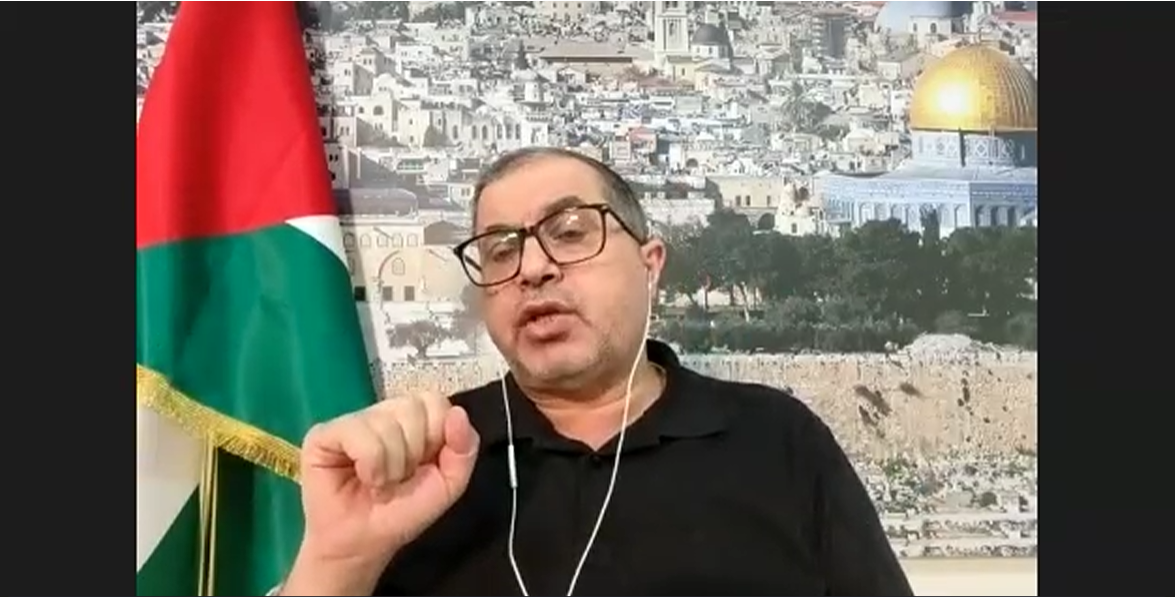
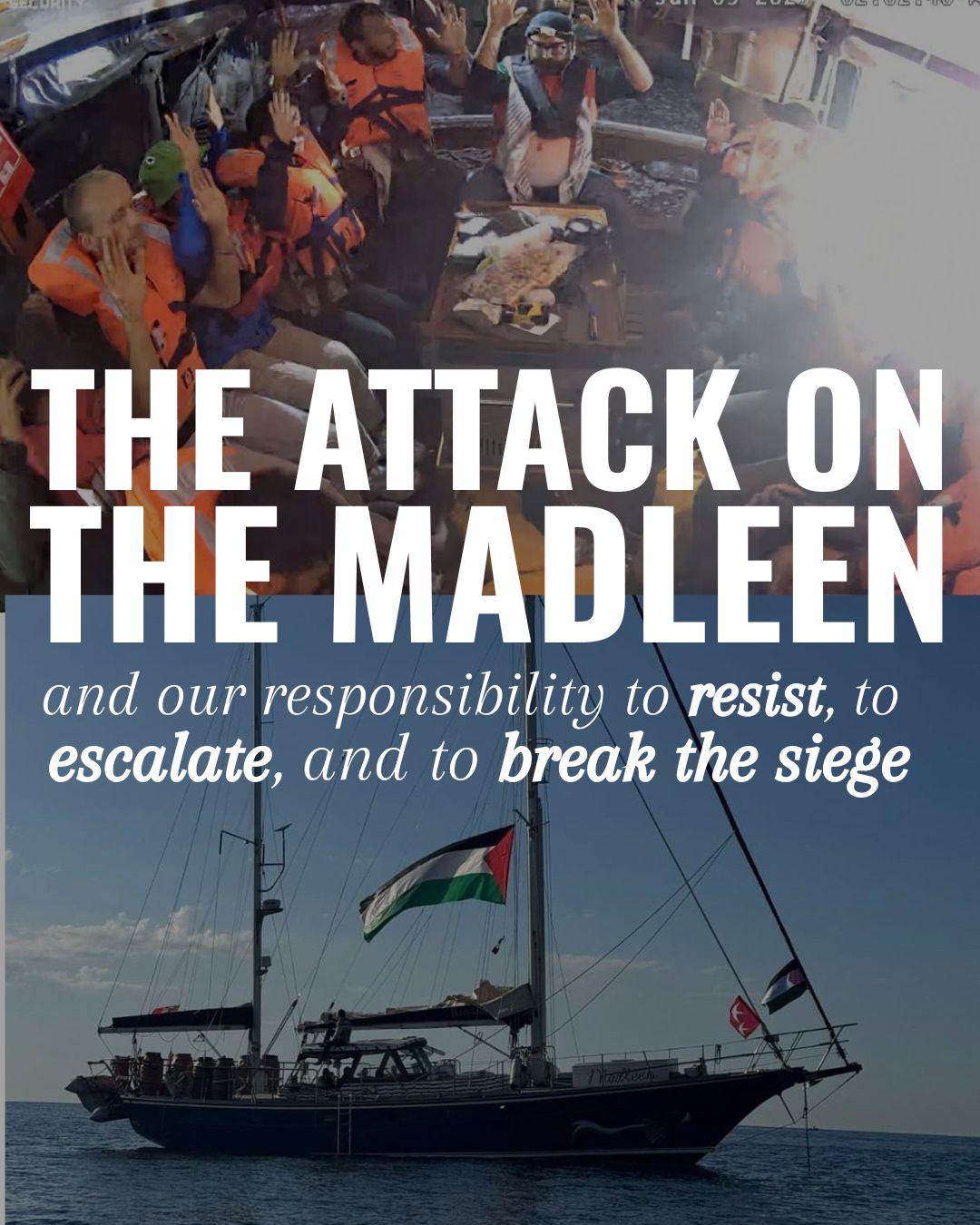
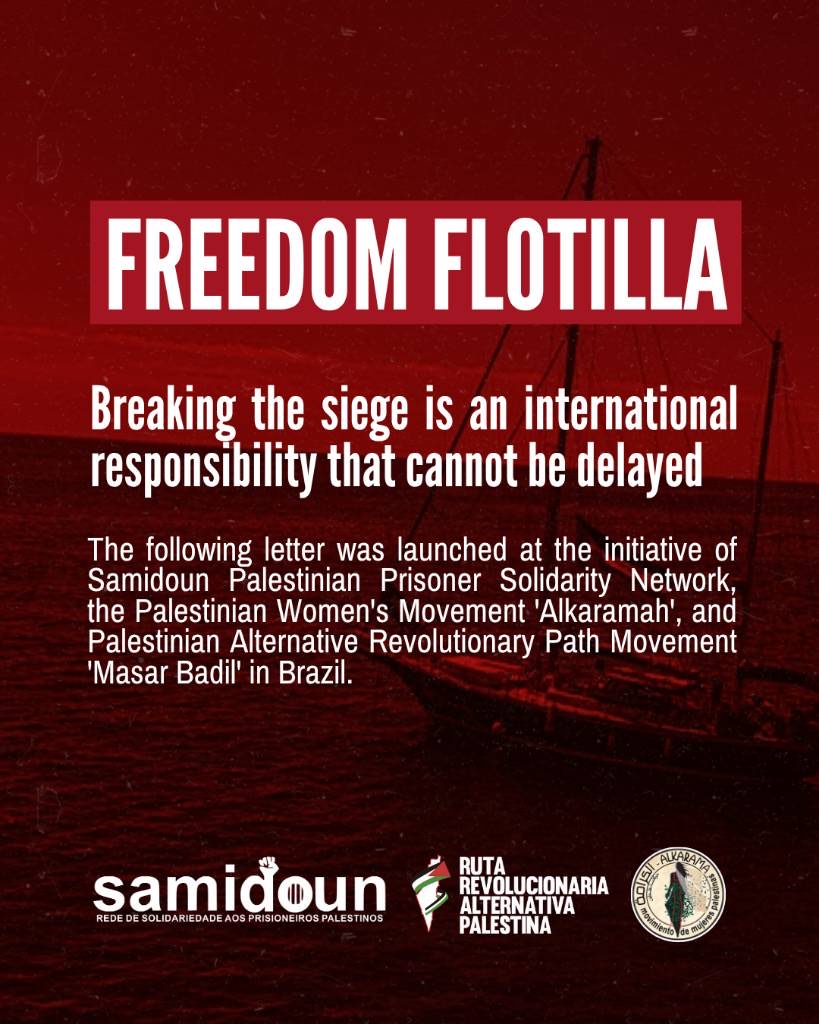

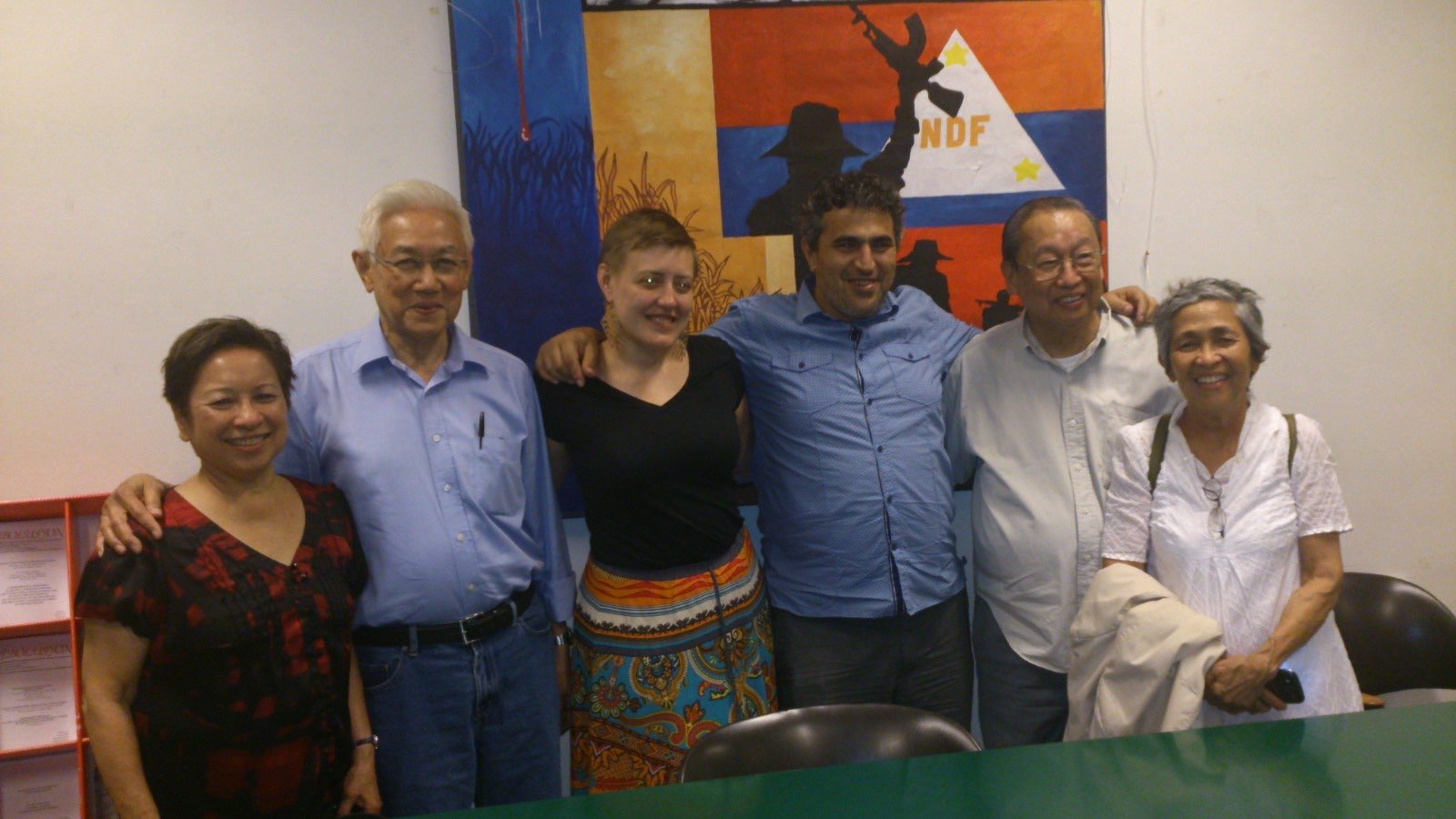
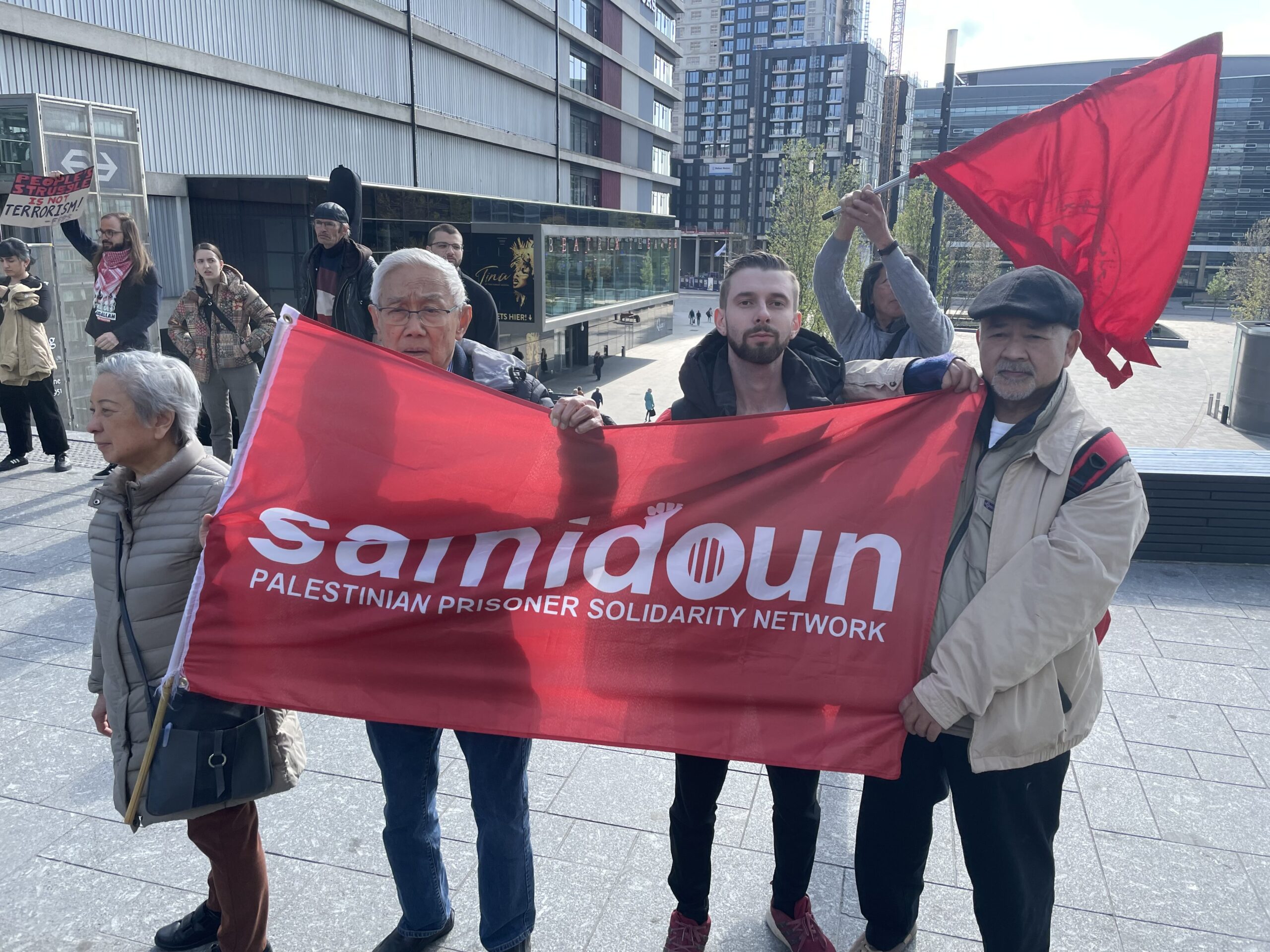
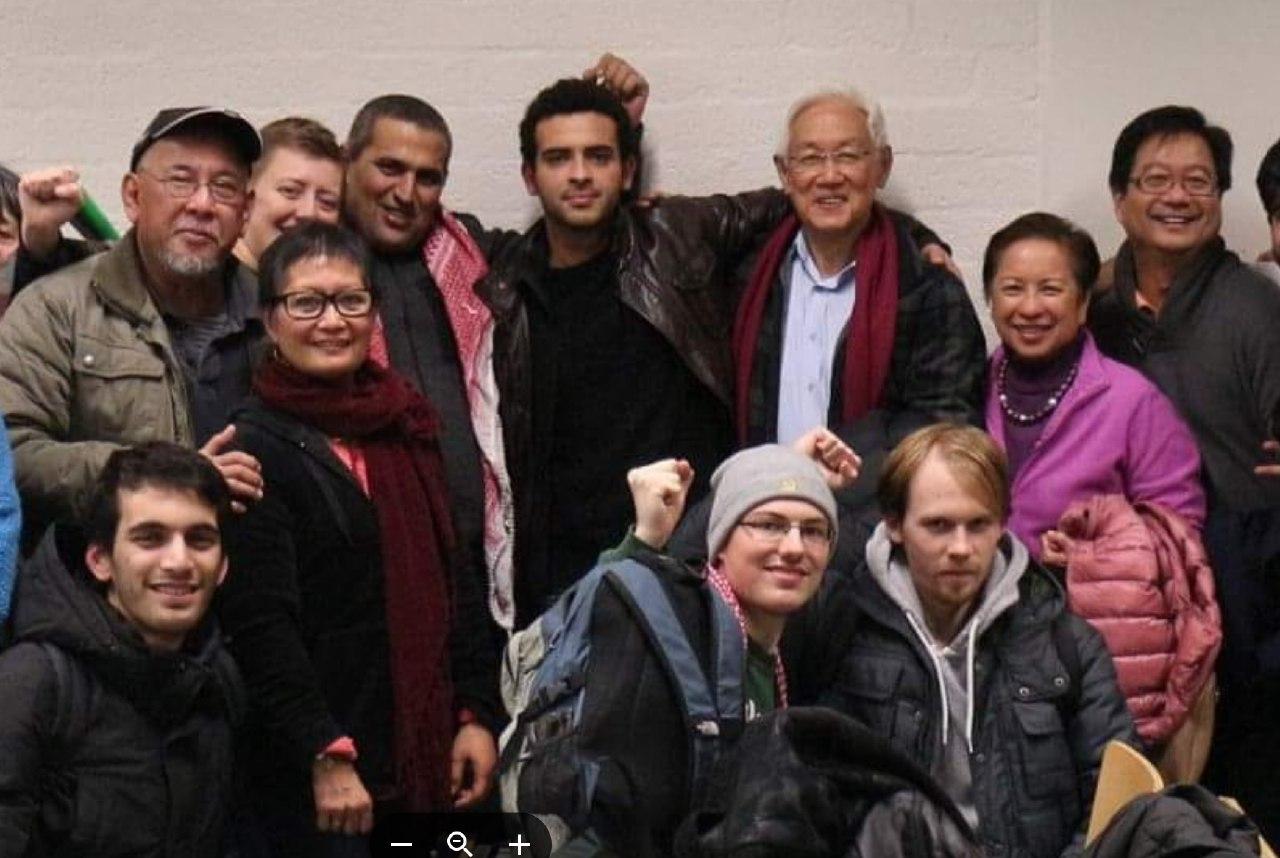
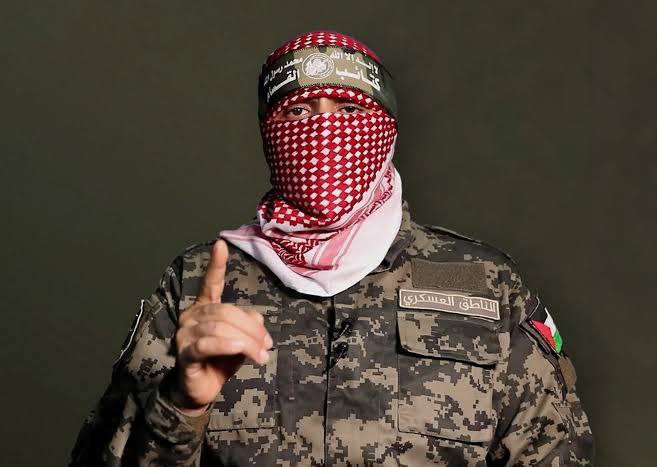
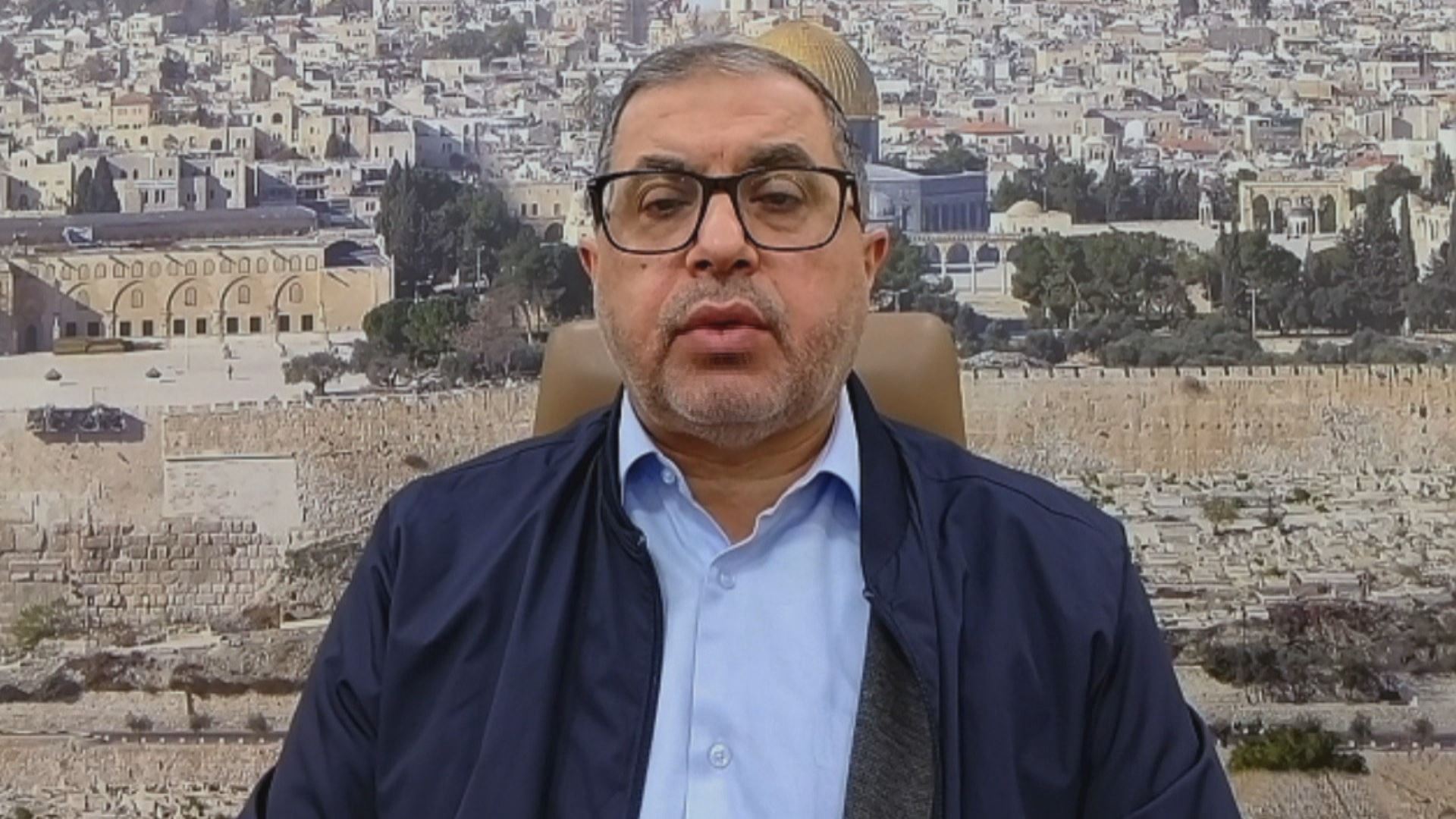
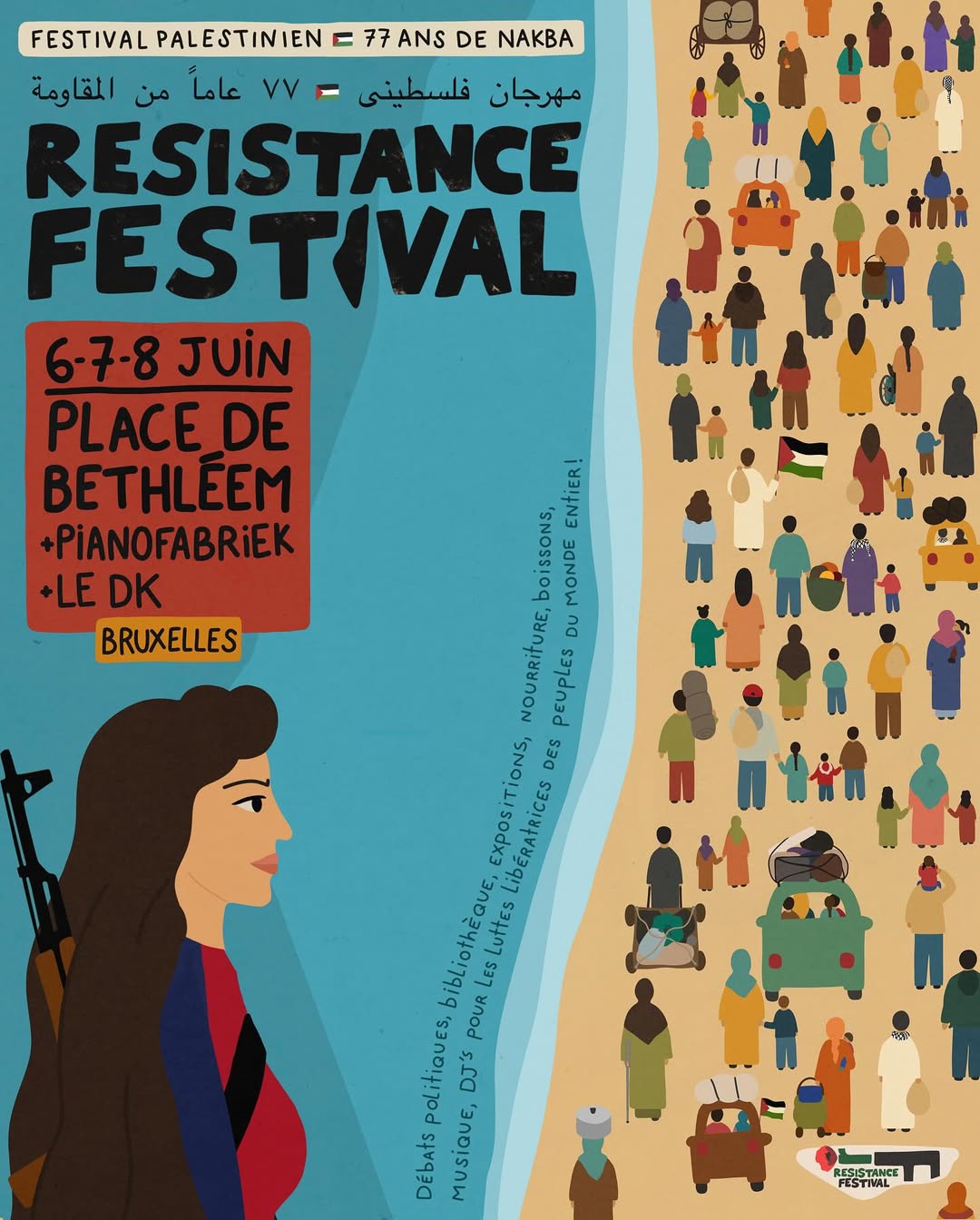
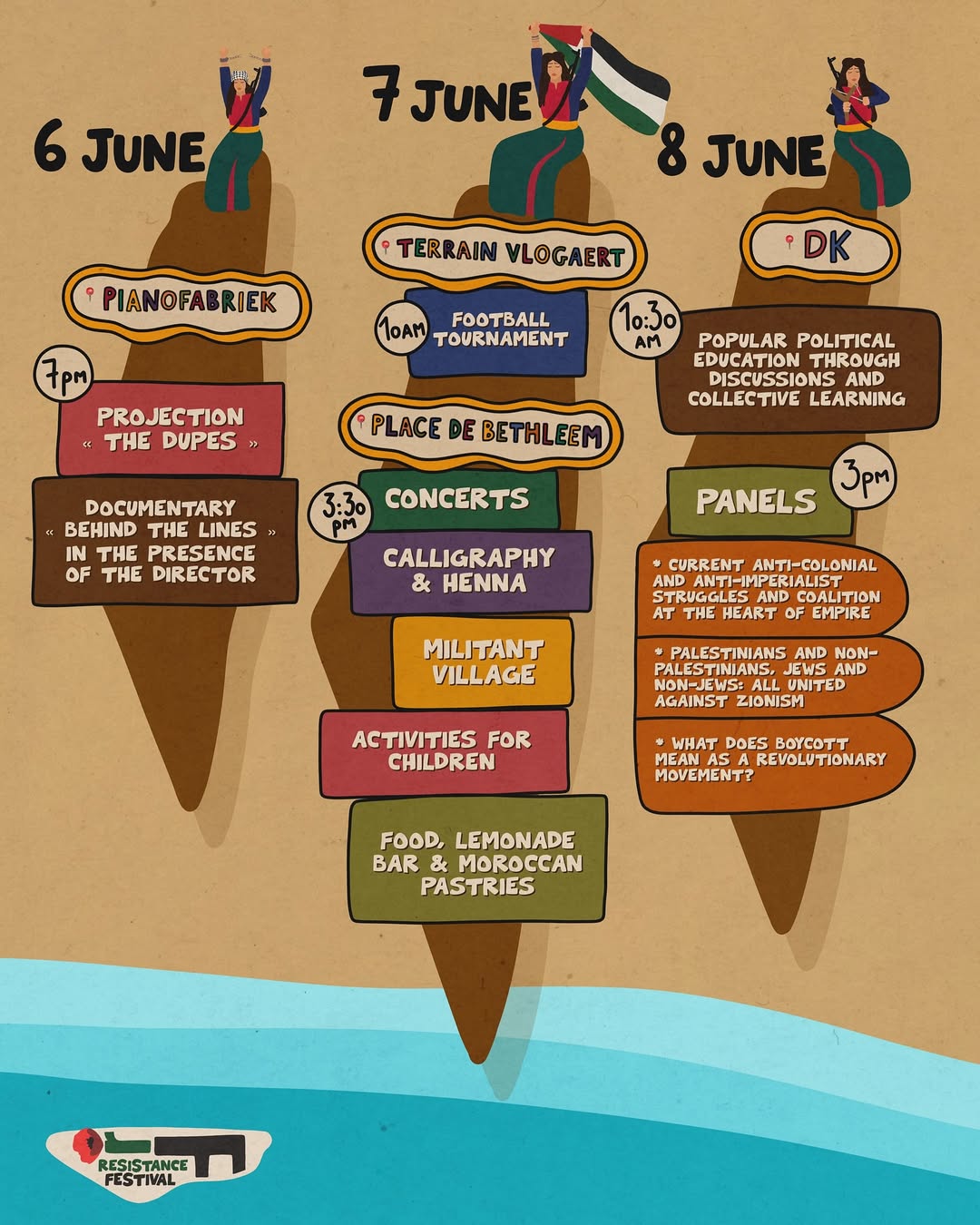
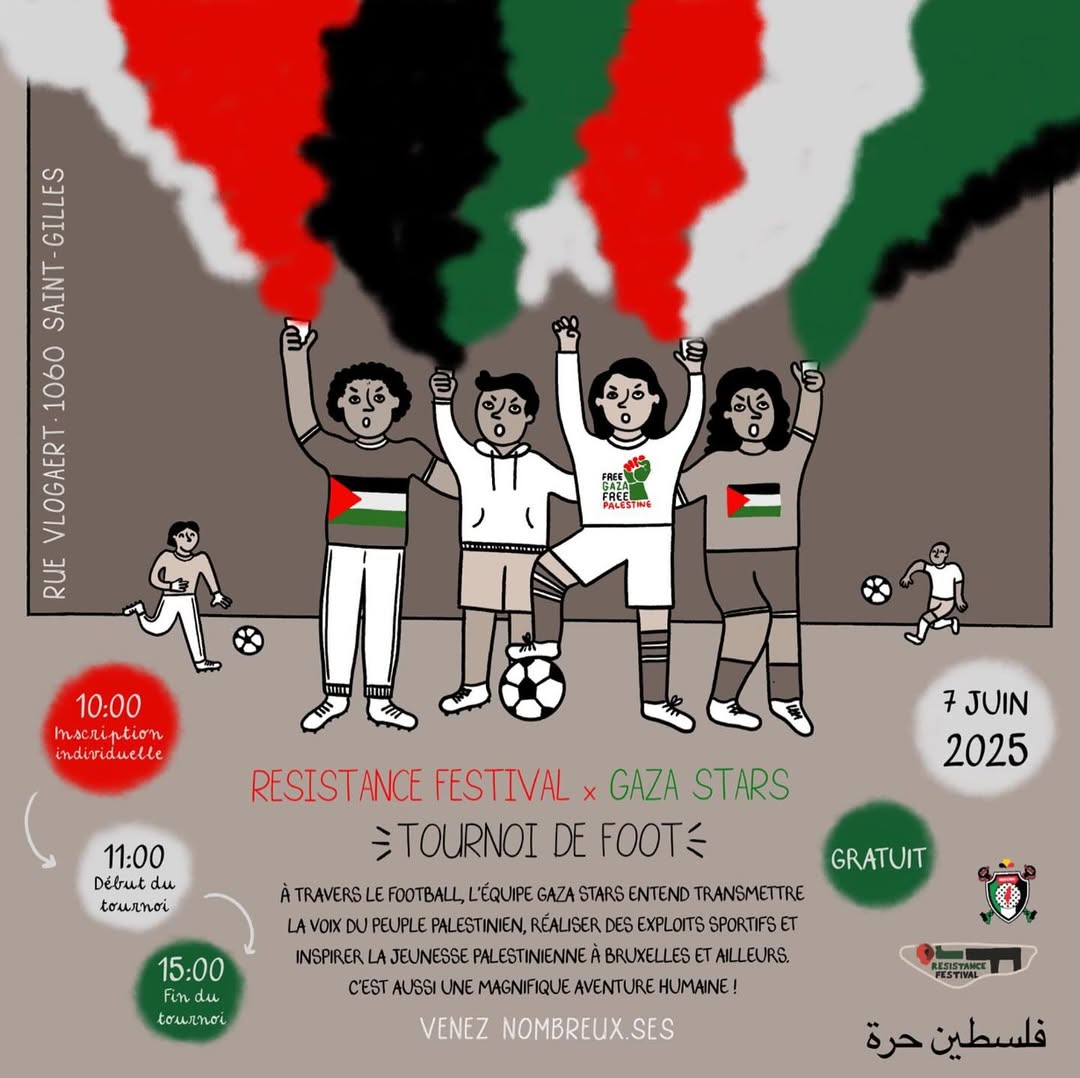
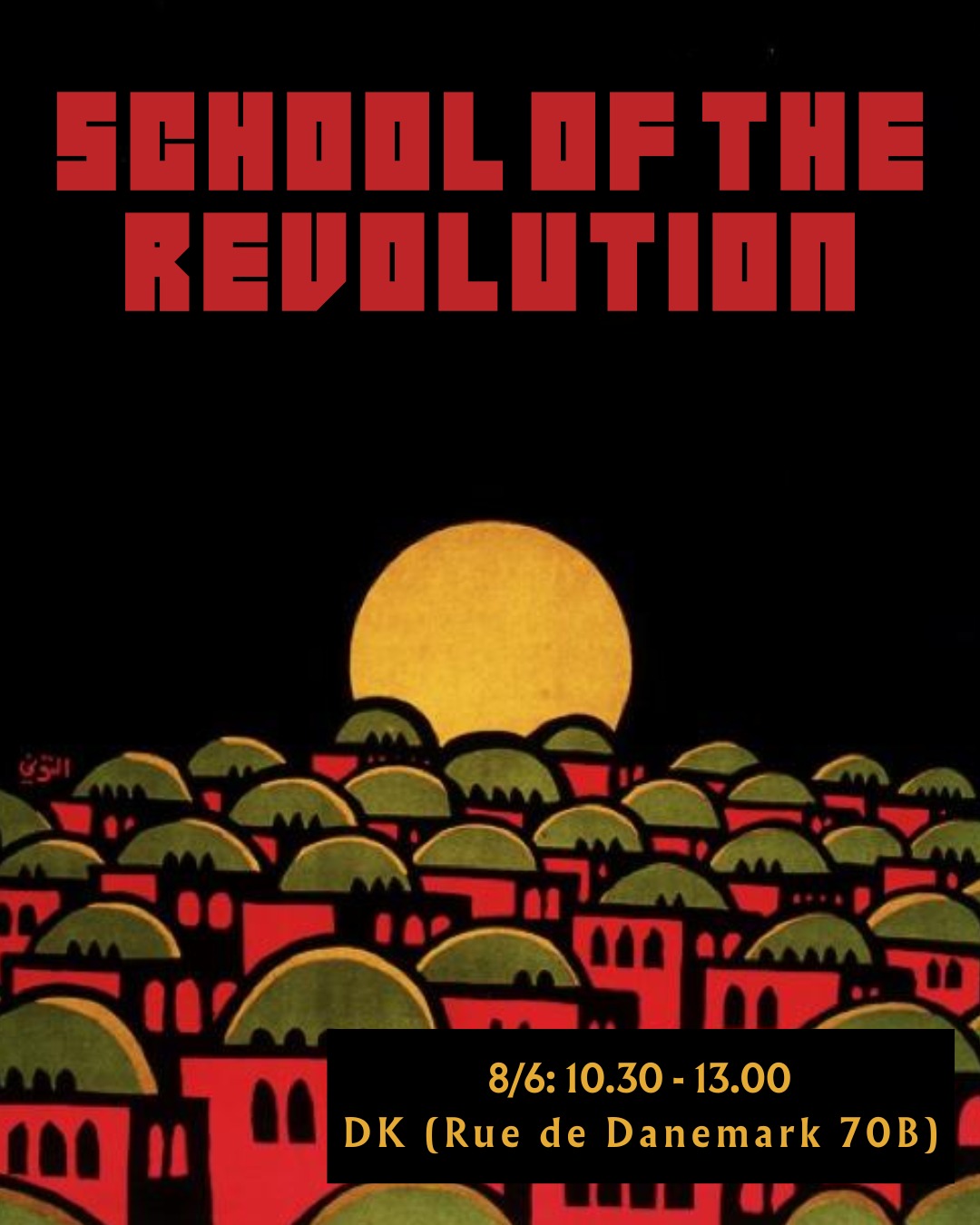 From 10:30 am to 3 pm, the Festival will co-host, with the School of the Revolution, a school and learning collaboration bringing together collectives across Brussels resisting police violence and state repression, organizing against fascism, struggling against the targeting of migrants and building solidarity with Palestine.
From 10:30 am to 3 pm, the Festival will co-host, with the School of the Revolution, a school and learning collaboration bringing together collectives across Brussels resisting police violence and state repression, organizing against fascism, struggling against the targeting of migrants and building solidarity with Palestine.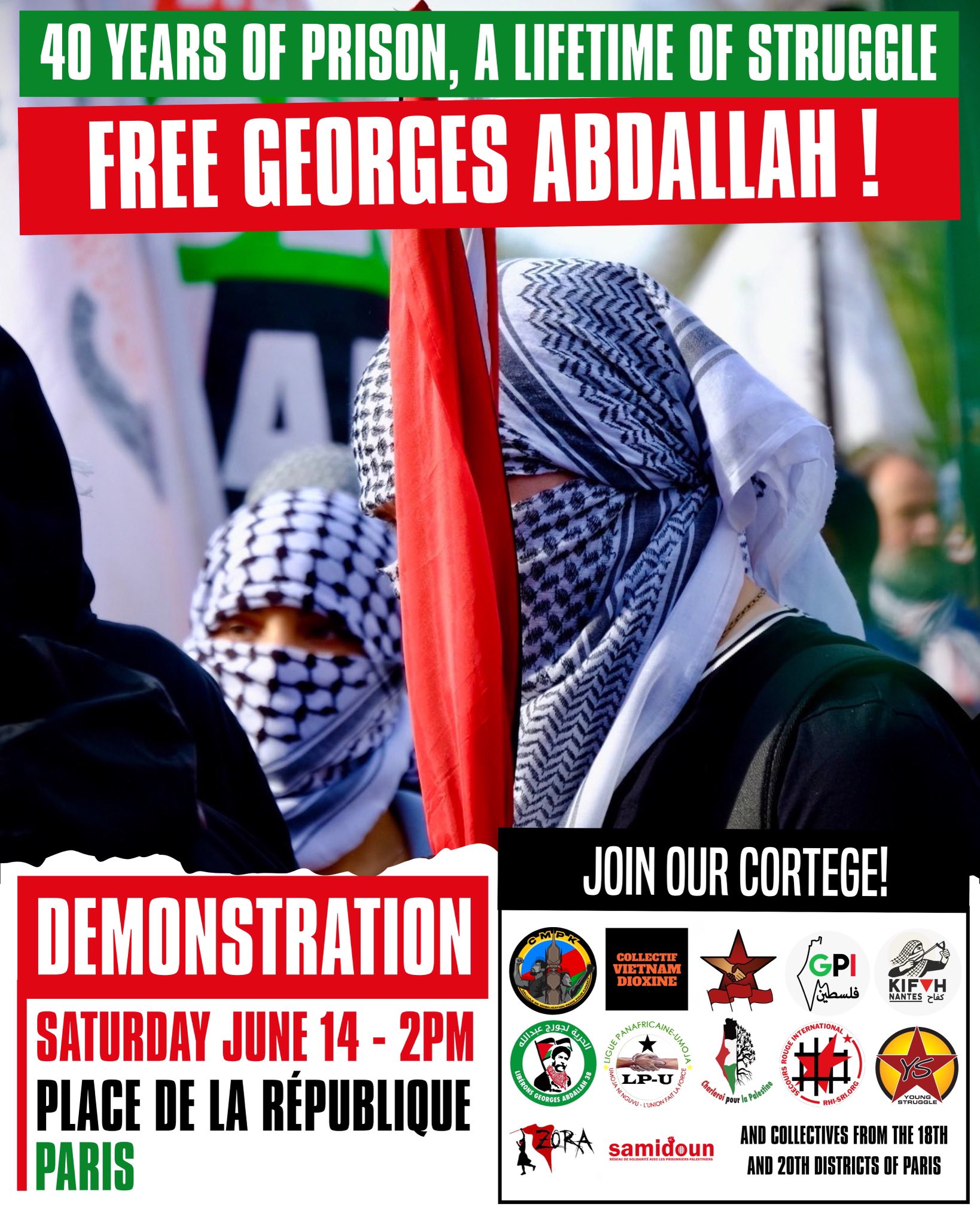
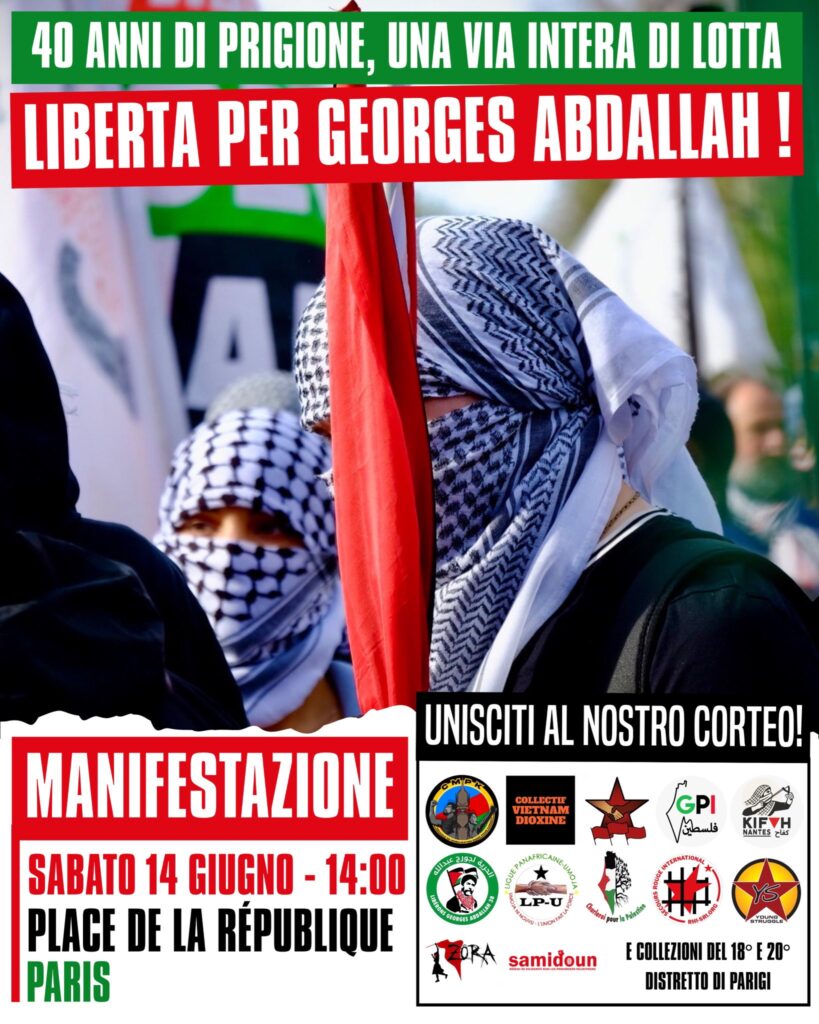
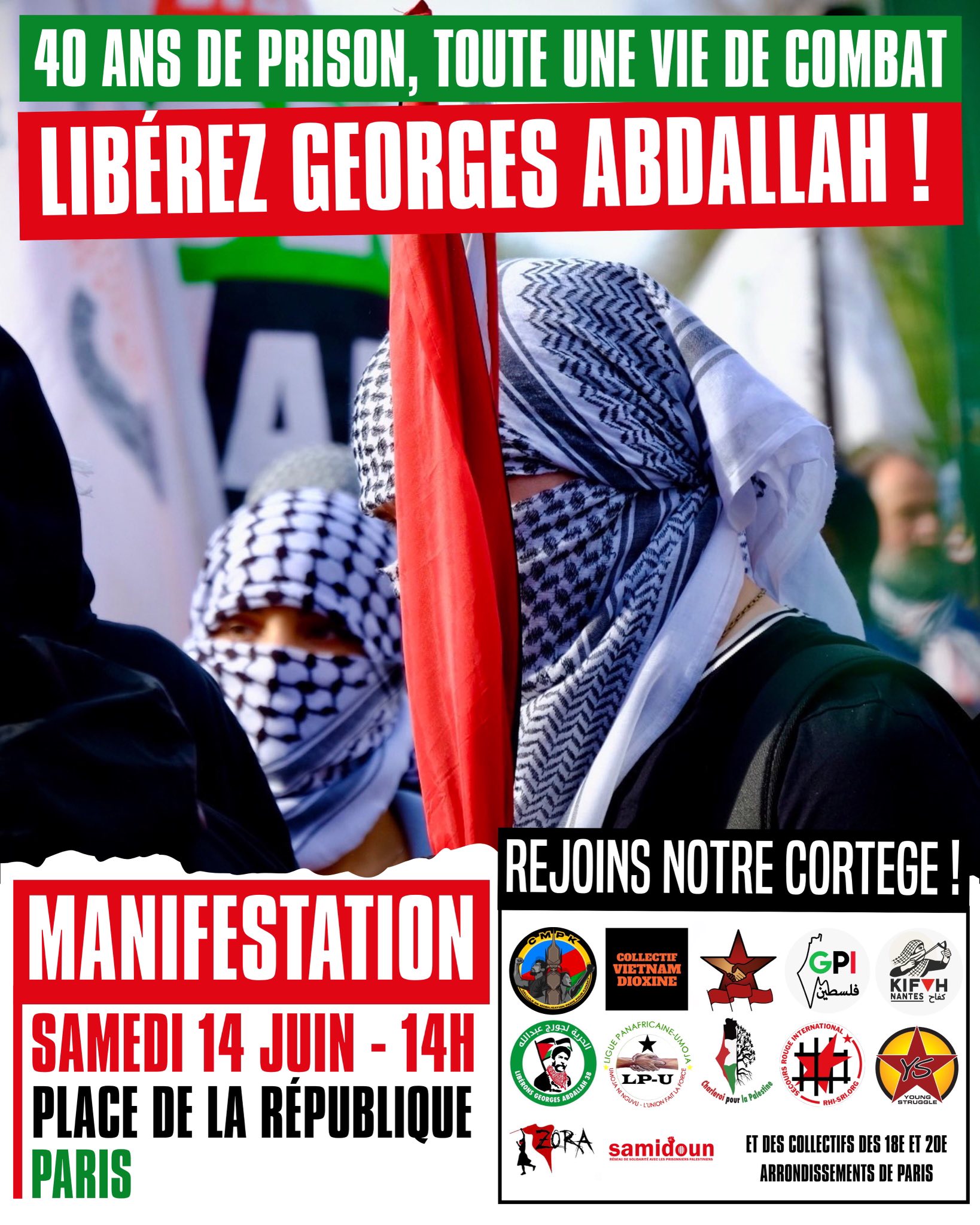
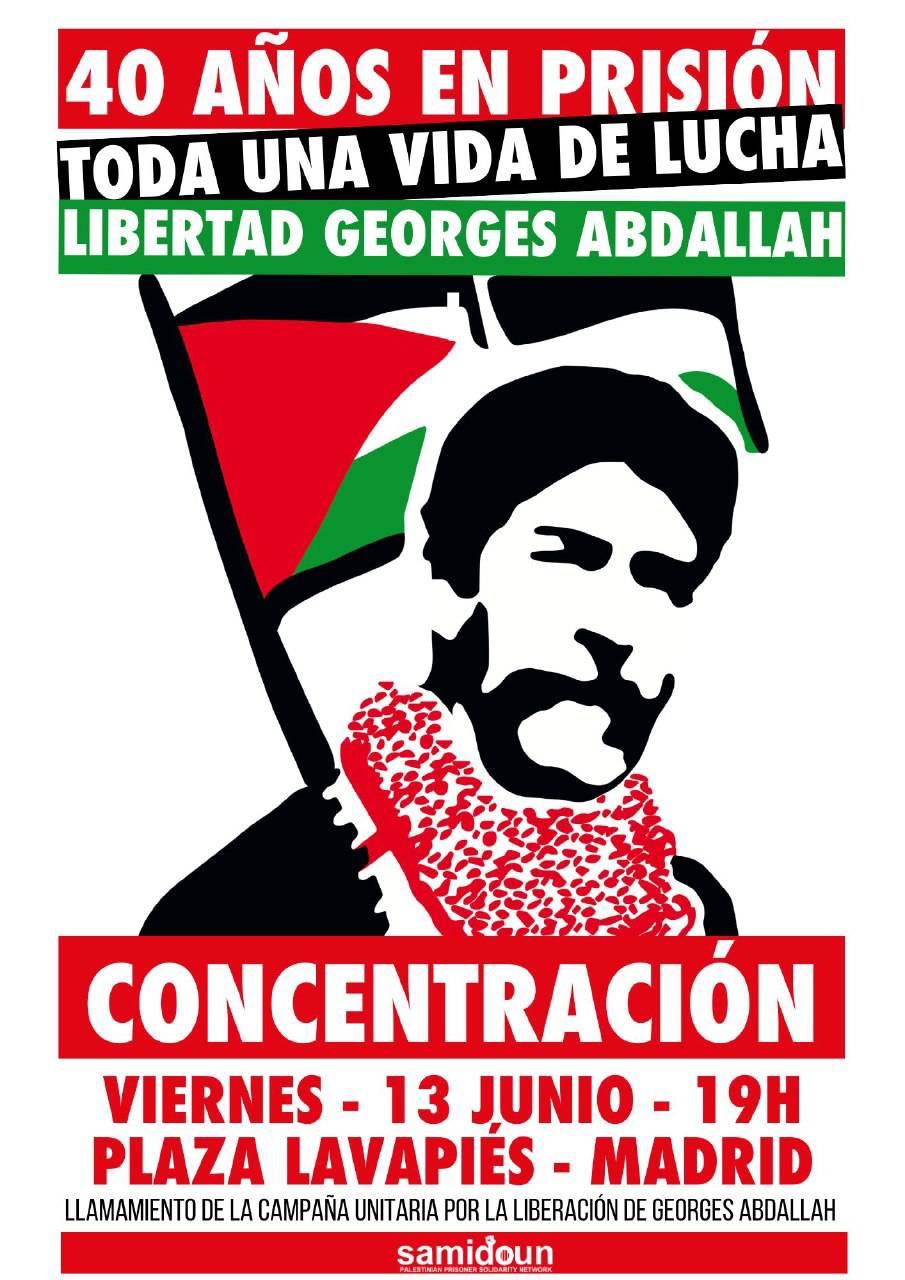 In North America, the
In North America, the 